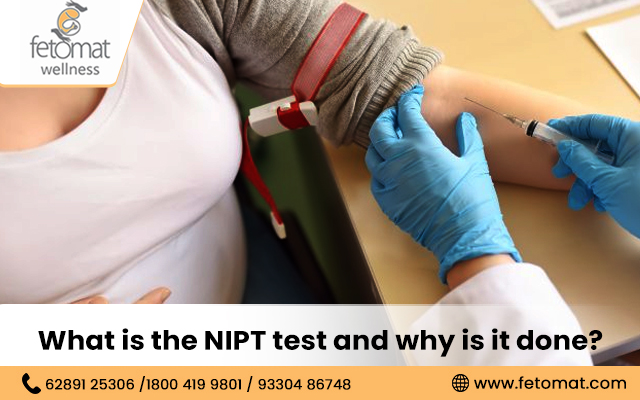NIPT test determines whether a fetus is at risk of being born with genetic abnormalities. Know more from the doctors of a high risk pregnancy care clinic.
What is the NIPT test and why is it done?
At the time of pregnancy, the baby’s DNA tends to circulate in the mother’s blood. DNA refers to a substance that contains one’s genetic information, and it’s also what our chromosomes are made up of. By analyzing the DNA present in the mother’s blood, doctors of the best high risk pregnancy care clinic in Kolkata are able to determine whether the baby is affected with Down Syndrome. After a few hours of being born, the DNA of the baby gets lost in the mother’s bloodstream. Hence, NIPT or Non-invasive Prenatal Testing is vital during pregnancy.
When is NIPT recommended?
NIPT is recommended when results from an FTS or Quadruple Marker Test for Down Syndrome come back positive. It serves as an alternative to more invasive tests like CVS or Amniocentesis.
How is the NIPT test done?
As per the doctors of the best clinic for pregnancy care in Kolkata, the test is performed by taking a small sample of the mother’s blood. Around 10 ml of blood is taken from the arm, similar to a regular blood test. The blood is then sent to a laboratory for testing.
When is the right time to get an NIPT test?
There is a sufficient amount of the baby’s DNA present in the mother’s blood after ten weeks of pregnancy. Hence, it cannot be done before that time. You must undergo an ultrasound first to determine how far you are along in your pregnancy and whether you have multiple fetuses in the womb. The NIPT will help to assess any fetal abnormalities.
Is NIPT accurate?
It is estimated that a NIPT test is ninety-nine per cent accurate in detecting Down Syndrome, so there is only a minor chance (1 in 100) that the test would not be able to assess the affected pregnancy.
How long does it take to get NIPT results?
Pregnant women usually get the test results within two weeks of taking the test. In some cases, the lab might be unable to gather enough DNA to obtain the results. In this case, you will be asked for a second blood sample so that the test can be done again, and there will not be any additional costs involved.
What are some of the possible results of a NIPT test?
- ‘Highly unlikely to be affected’ or Negative Screening: If your test results come negative, your baby will be unlikely to suffer from Down Syndrome, Patau Syndrome or Edwards Syndrome.
- ‘Predicted to be affected’ or Positive Screening: In case your NIPT results come back positive, you will be recommended an invasive test like amniocentesis or CVS to confirm the results.
- Inconclusive/ Failed result: As discussed earlier, if your baby’s DNA is not detected in your blood, you will be asked to undergo another test.
Is NIPT safe?
As the test resembles a normal blood test, it will not cause any harm to you or the baby. Like other blood tests, you might notice some bruising in the area where the sample has been taken.
To know more about this test, reach out to the doctors of the best high risk pregnancy care clinic in Kolkata.

